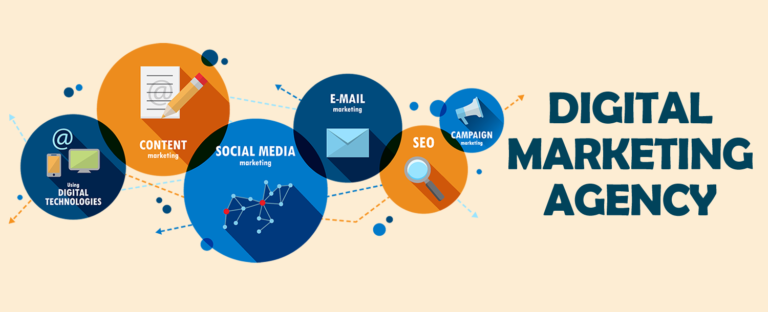Digital marketing has become an essential part of business growth strategies over the past decade. As technologies evolve and consumer behaviors change, companies require expert guidance to navigate this dynamic online landscape. This is where digital marketing agencies come in. However, what exactly makes an agency different from an in-house digital marketing team or company?
Let’s break down the key differences between a digital marketing agency and a company to help you determine the best partner for your business goals.

Core Functions
A digital marketing agency’s core function is to provide marketing and advertising services to external clients. Their expertise lies in managing digital campaigns, projects, and programs on behalf of various companies across different industries.
On the other hand, a company’s core function is to produce, distribute, and sell its products or services. While some large companies may have dedicated in-house digital teams, the primary focus remains on their core offering rather than acting as an agency for other businesses.
Specialized Skills and Services
Agencies employ specialists across various digital marketing disciplines like search engine optimization (SEO), paid search, social media marketing, email marketing, web design and development, content creation, analytics, and more.
They have deep experience and proprietary strategies for each channel. Agencies also stay up to date with the latest marketing technologies and trends to offer tailored solutions.
Companies may have generalists handling digital tasks but lack some of the specialized expertise agencies possess. Outsourcing to an agency allows companies to tap into a wider range of skills.
Resources and Scale
Agencies have dedicated resources, large teams, specialized tools, and economies of scale from serving multiple clients simultaneously. This allows them to efficiently execute campaigns on a broad scope.
For a single company, maintaining such resources in-house would require a substantial budget and headcount which may not always be feasible or cost-effective compared to outsourcing certain activities.
Objective Viewpoint
As external partners, agencies can provide an unbiased perspective on a company’s brand, products, target audiences, and competitive landscape. They analyze metrics with impartiality to spot growth opportunities the company may miss internally.
Internal teams working for their own company may have subjective views colored by various factors within the organization. Agencies offer a more objective third-party viewpoint.
Brand Independence
Agencies are not tied to any single brand or industry which gives them flexibility to experiment with diverse strategies. Their reputation and success depend on delivering results across clients rather than pushing their products.
Companies are constrained by their proprietary brand identity, messaging, and offerings. Testing new unproven approaches may introduce potential risks to the core business model. Agencies mitigate such challenges for client brands.
Cost Structure
For companies, setting up and maintaining specialized in-house digital teams requires large fixed capital expenditures on infrastructure, tools, staff salaries, etc. This may strain resources, especially for smaller and medium businesses.
Agencies operate on a variable cost structure, charging mainly for services delivered. This subscription model passes on setup and overhead costs across multiple clients, keeping pricing economical for companies of all sizes on a pay-as-you-go basis.
Common FAQs
Q. How do I decide between an agency or an in-house team?
A. Consider your goals, budget, required expertise, and desired level of accountability. Agencies are best for periodic projects or channel-specific needs. In-house works better for core business functions and long-term brand-building activities.
Q. What should I look for in a good digital marketing agency partner?
A. Expertise in your industry, proven success track record, transparent communication, dedicated account management, technology integrations, and focus on KPI-based performance. Good cultural fit is also important for long-term collaboration.
Q. How do agencies charge for their services?
A. Most agencies operate on monthly retainer fees or project-based payments. Some also charge hourly rates. Expect additional costs for pay-per-click ads, advanced tools, etc. Agree on payment structure and deliverables upfront to avoid scope creep issues later.
Q. How can a company leverage both options for best results?
A. Use agencies for specialized services like SEO, paid media buying, etc. Manage core messaging, content, and analytical functions in-house. Review progress together to gain from an external perspective while retaining brand control internally.
In conclusion, both digital marketing agencies and in-house teams have pros and cons depending on a company’s short and long-term goals. Leveraging specialized agency expertise alongside internal stewardship of key functions provides the optimal approach for most organizations seeking to maximize growth in today’s digital landscape. Outsourcing non-core activities to reputed professionals allows companies to stay agile and stay focused on their core offerings.

